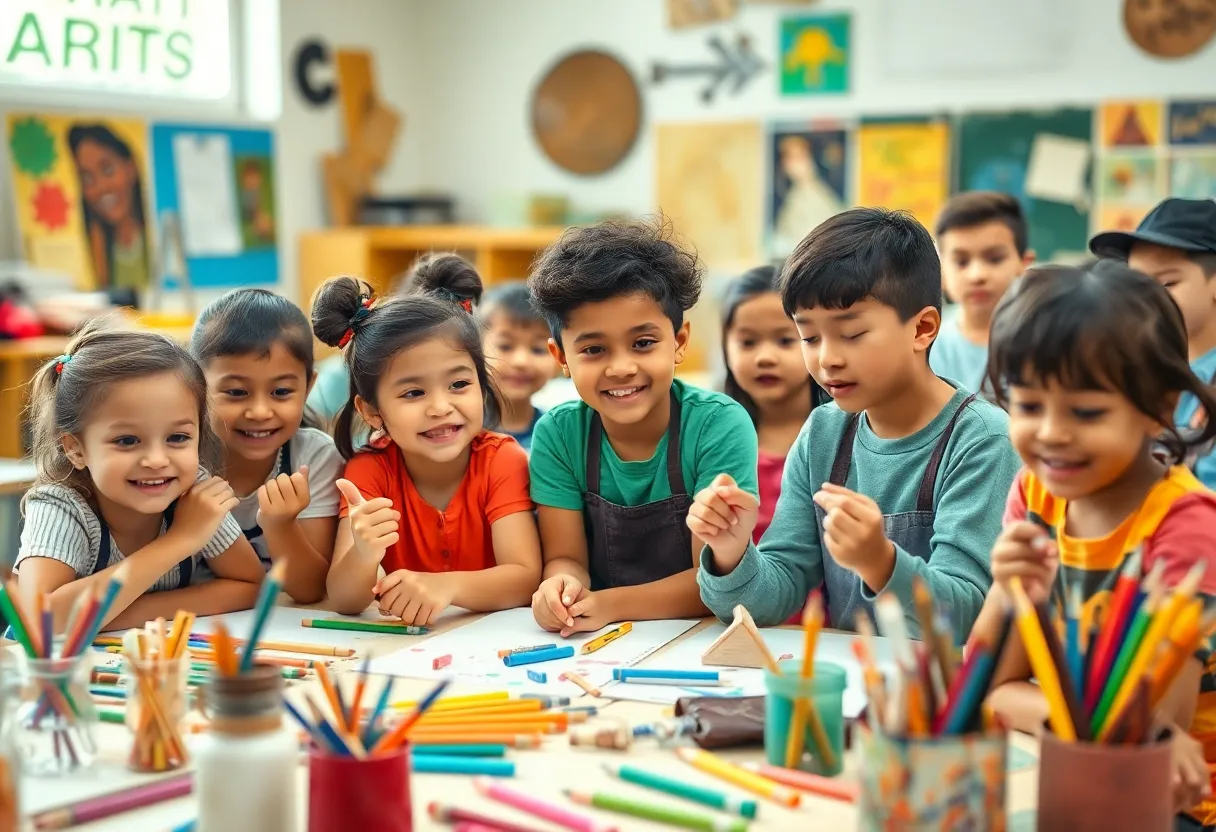News Summary
Nanjing University of the Arts has introduced an innovative emotion-driven learning analytics framework aimed at improving college art courses. The framework focuses on theoretical research, model construction, empirical analysis, and application services to optimize teaching methods and enhance student experiences. A multi-modal learning model assesses emotional responses and educational outcomes. Evaluations revealed areas for improvement in aesthetics, learning costs, and privacy, while also highlighting the importance of ethical data use. This initiative underscores the significance of emotional intelligence in art education, paving the way for a more engaging learning experience.
Nanjing University of the Arts Unveils Innovative Framework to Transform Art Education
The Nanjing University of the Arts has recently developed a groundbreaking emotion-driven learning analytics framework aimed at enhancing the educational experience in college art courses. This innovative framework seeks to optimize teaching methods while improving learning outcomes for students engaged in the arts.
Framework Components
The newly designed learning analytics framework encompasses four essential components: theoretical research, model construction, empirical analysis, and application services. Each of these aspects plays a vital role in ensuring that the framework effectively addresses the emotional and educational needs of art students.
Multi-Modal Learning Analytics Model
At the heart of this initiative is a comprehensive multi-modal learning analytics model. This model is composed of four core modules: emotion perception, data processing and analysis, teaching intervention, and learning outcome assessment. Each module was subjected to rigorous empirical testing processes and methods to evaluate its functionality and impact.
Evaluation and Effectiveness
The applicability of the learning analytics model was assessed using the Technology Acceptance Model (TAM), which provides insights from both educators and students. Through this dual-perspective evaluation, the model exhibited overall positive effectiveness, suggesting that it can serve as a valuable tool in art education.
However, the study also highlighted several areas requiring optimization. Key factors identified include aesthetics, learning costs, non-intrusiveness, and data privacy, suggesting that while the framework is effective, enhancing these areas could further improve the teaching and learning experience.
Future Trends and Considerations
The research explored future trends in art education, particularly in relation to multidisciplinary integration, multi-modal data collection, and data security. Ethical considerations surrounding the use of data in educational settings were also discussed, emphasizing the importance of maintaining student privacy while leveraging technology for better learning outcomes.
Contributors and Support
The study involved significant contributions from key academics and professionals in the field, including an associate professor at Nanjing University of the Arts and a national artist. Support for the research came from the Culture and Art Big Data Laboratory and the Chinese Culture Inheritance and Digital Intelligence Innovation Laboratory at Nanjing University of the Arts, showcasing a collaborative effort to enhance educational practices.
Accessibility of Data
All data derived from this study are reported to be available without restrictions, providing transparency and openness in sharing findings with the broader educational community. The authors indicated that there were no conflicts of interest related to the research, reinforcing the integrity of the study.
This innovative approach to art education represents a significant step forward in how emotional data can be integrated into learning analytics, potentially influencing teaching strategies and learning experiences in artistic disciplines for years to come.
Deeper Dive: News & Info About This Topic
Additional Resources
- Glasstire: Exchange and Dialogue – A Co-Curated China-U.S. Art Exchange
- ArchDaily: Nanjing Art Center by Studio Link-Arc
- The World of Chinese: Outside Looking In
- Encyclopedia Britannica: Eight Masters of Nanjing
- Canvas Rebel: Meet Nini Qiao
Author: Construction NY News
NEW YORK STAFF WRITER The NEW YORK STAFF WRITER represents the experienced team at constructionnynews.com, your go-to source for actionable local news and information in New York and beyond. Specializing in "news you can use," we cover essential topics like product reviews for personal and business needs, local business directories, politics, real estate trends, neighborhood insights, and state news affecting the area—with deep expertise drawn from years of dedicated reporting and strong community input, including local press releases and business updates. We deliver top reporting on high-value events such as the New York Build Expo, infrastructure breakthroughs, and cutting-edge construction technology showcases. Our coverage extends to key organizations like the Associated General Contractors of New York State and the Building Trades Employers' Association, plus leading businesses in construction and real estate that power the local economy such as Turner Construction Company and CMiC Global. As part of the broader network, including constructioncanews.com, constructiontxnews.com, and constructionflnews.com, we provide comprehensive, credible insights into the dynamic construction landscape across multiple states.





